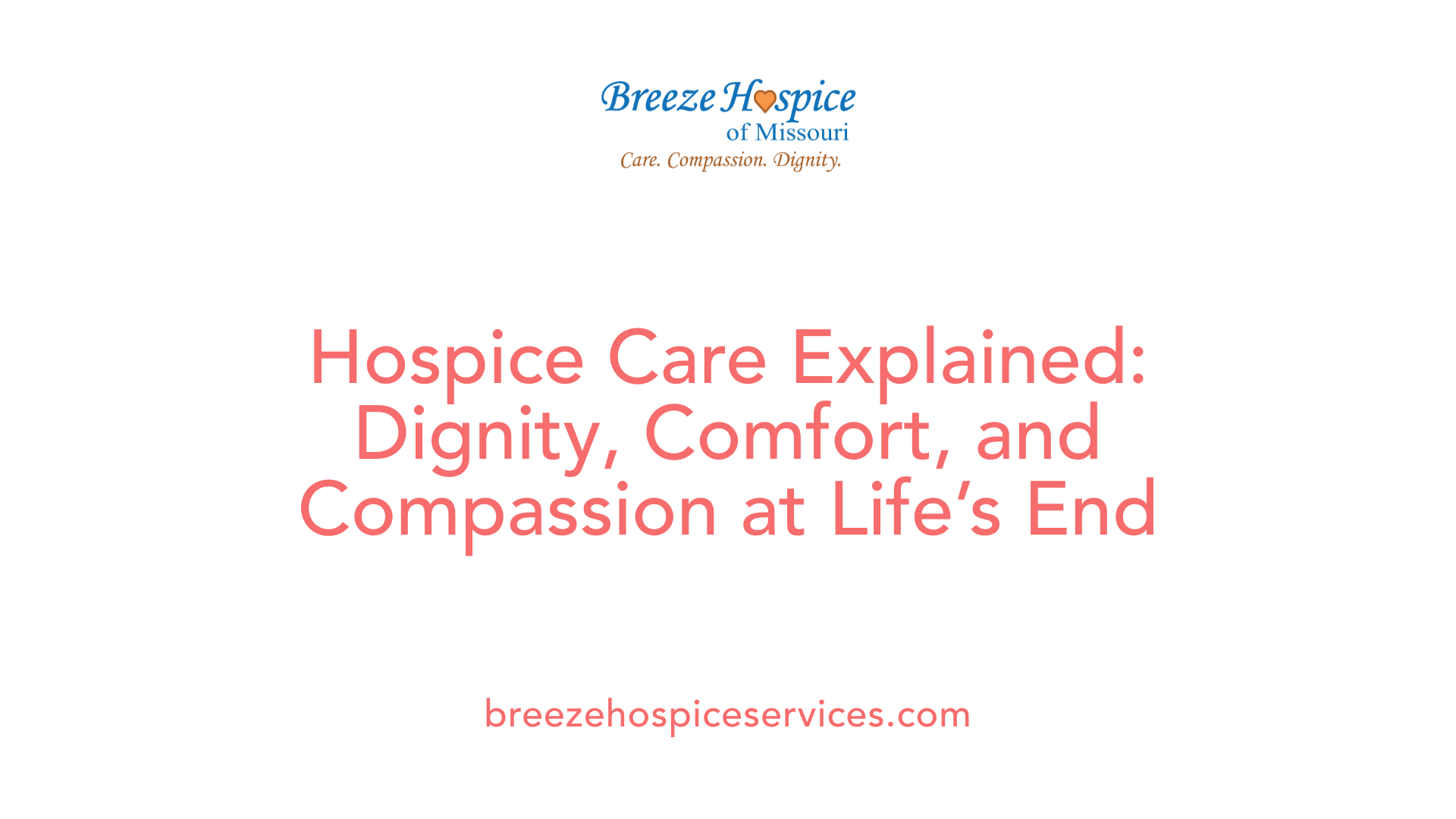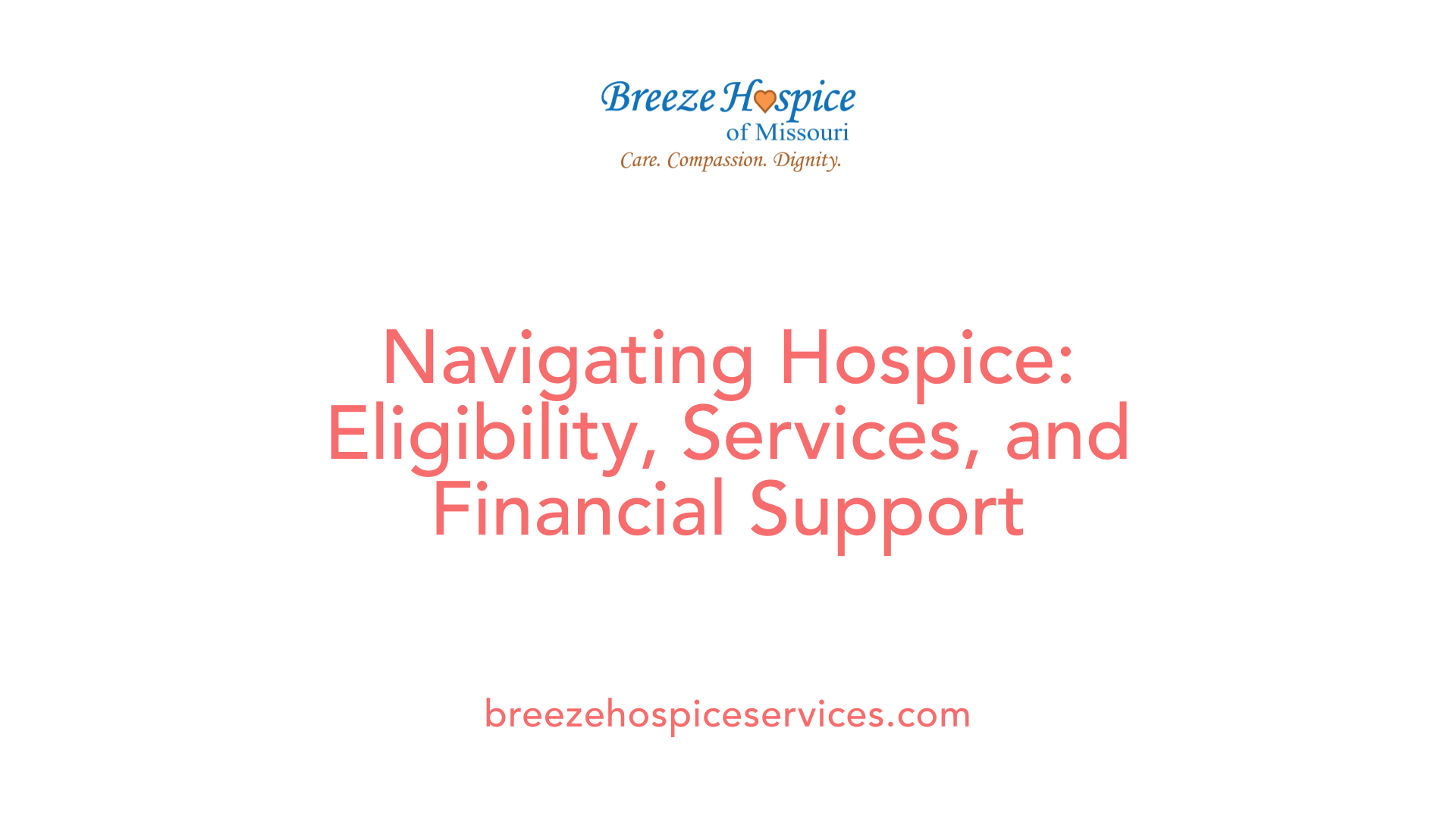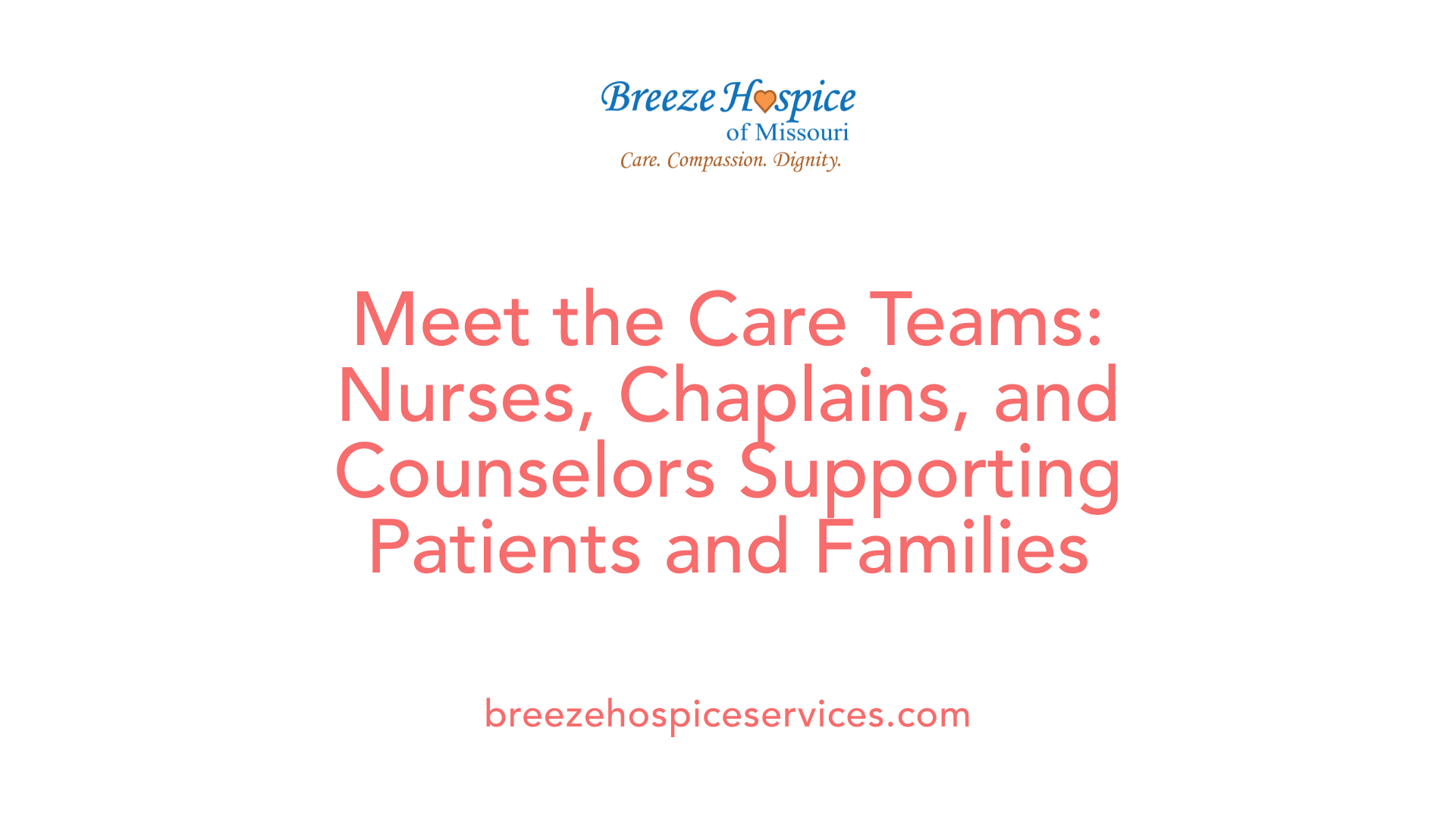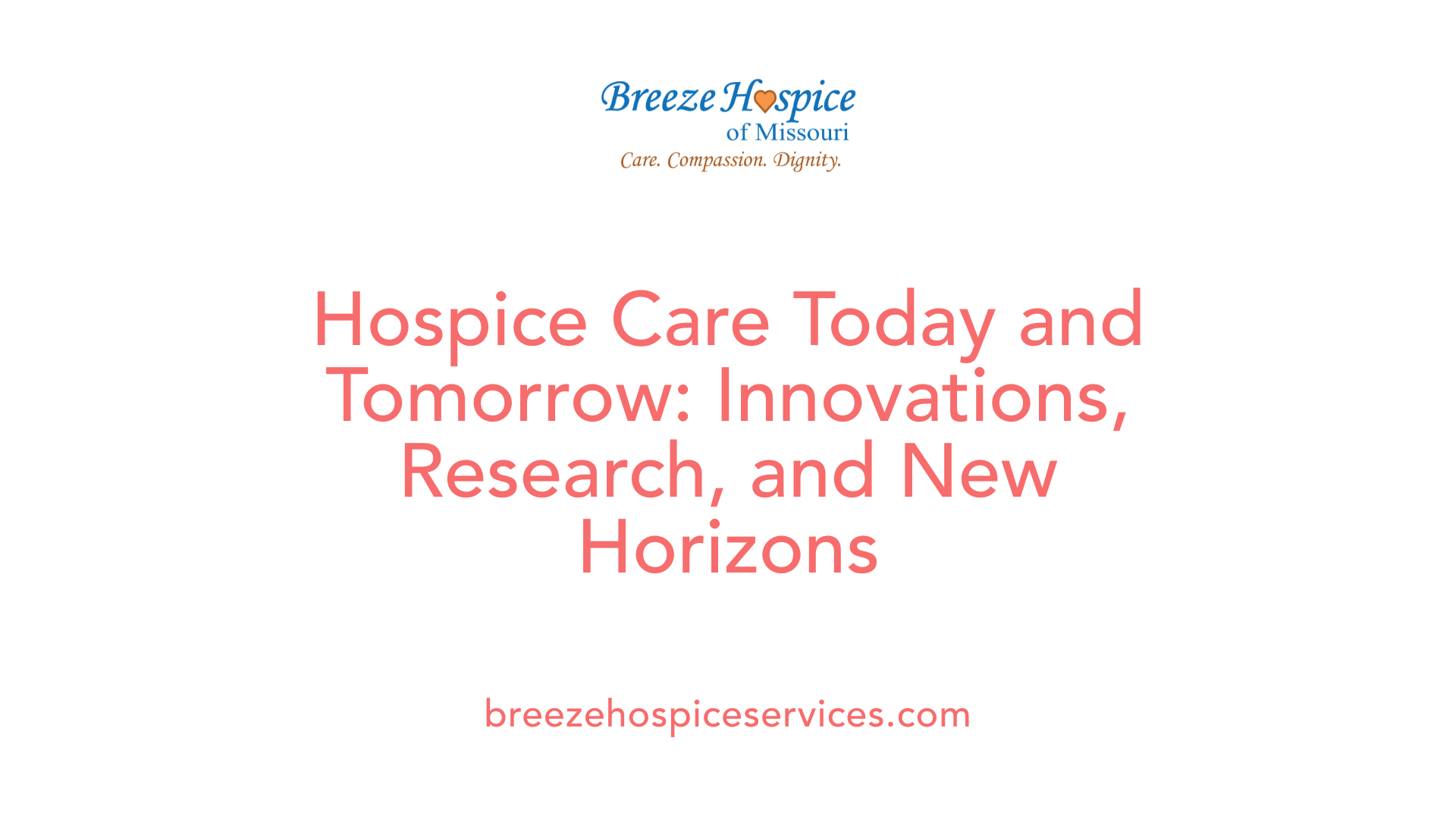Hospice Care Educational Podcasts
July 21, 2025
Enhancing End-of-Life Care Through Curated Podcasts

An Educational Journey Into Hospice and Palliative Care
Hospice care is a vital component of compassionate healthcare, providing comfort and dignity to patients nearing end of life. As awareness and understanding of these services grow, podcasts have emerged as valuable educational tools that bridge gaps in knowledge for families, caregivers, and healthcare professionals alike. This article explores prominent hospice care educational podcasts, highlighting their content, purpose, and the vital role they play in demystifying end-of-life care.
The Role of Podcasts in Hospice Education
Why accessible education matters in hospice care
Providing clear, reliable information about hospice services is crucial for patients, families, and healthcare professionals. It helps dispel misconceptions, manage expectations, and foster informed decision-making. Education also supports emotional preparedness and enhances understanding of what can be a challenging phase of life.
How podcasts are valuable resources
Podcasts offer a convenient and accessible way to learn about hospice and palliative care. They can be listened to at any time and place, making them ideal for busy caregivers and families seeking trustworthy guidance. With topics ranging from managing symptoms to spiritual support, these audio resources cover all aspects of end-of-life care.
Notable podcasts dedicated to hospice and palliative care
Several key podcasts stand out for their educational content.
| Podcast Name | Focus Area | Notable Features |
|---|---|---|
| The Heart of Hospice | Caregiver education, holistic approaches | Hosted by nurse Helen Bauer, 578 episodes, high rating of 4.8/5 |
| The Conversation Project | End-of-life conversations, advance care planning | Offers expert interviews, promotes early discussions |
| Palliative Care Chat™ | Science, policy, and family support | Features healthcare professionals discussing current topics |
| Care Dimensions | Myths, understanding hospice, caregiving | Disperses misconceptions, emphasizes early planning |
| The Hospice Chaplaincy Show | Psycho-spiritual aspects | Focuses on grief, spiritual care, stories from end-of-life experts |
These podcasts feature insights from healthcare professionals and reflect best practices, aiming to educate both the public and professionals.
What do hospice patients want most at the end of life?
According to expert guidelines, hospice patients prioritize feeling respected and cared for with compassion. They value clear communication regarding their condition, effective symptom control, spiritual comfort, and maintaining a sense of control over their care. Such essential elements help ensure dignity and peace during their final days.
Are there any recommended podcasts on dying, end-of-life, or hospice care?
Yes, there is a rich array of podcasts dedicated to these sensitive topics. For example, The Conversation Project encourages open discussions about end-of-life wishes, while the Palliative Care Chat™ offers professional insights into managing complex symptoms and emotional support. These resources are invaluable for families, caregivers, and clinicians looking to deepen their understanding and skills.
For further exploration, searching for terms like "Hospice and palliative care educational podcasts," "end-of-life care resources," or "hospice myths and facts" can help find additional trustworthy content. Overall, these podcasts serve to enhance knowledge, support better care, and promote compassionate conversations around end-of-life issues.
Understanding Hospice Care: Concepts and Clarifications

What is the definition and scope of hospice care?
Hospice care is a form of comprehensive support for patients facing a terminal illness with an expected prognosis of less than six months. It is designed to provide comfort, dignity, and quality of life rather than curative treatment. Most of this care is delivered in the patient's home by a multidisciplinary team that may include nurses, physicians, social workers, chaplains, and aides. Services can also be available in inpatient hospices, hospitals, or nursing facilities, depending on the patient's needs.
Hospice care focuses on symptom management such as pain relief and emotional support, addressing physical, spiritual, and psychological needs of both patients and their families. Importantly, hospice care is adaptable; patients who improve may discontinue hospice and re-enter if their condition worsens, and they can continue to keep their regular doctors and medications while receiving hospice support.
How is hospice care accessed and who is eligible?
Patients qualify for hospice if their healthcare providers determine that their life expectancy is less than six months. However, this prognosis does not mean they cannot receive care if they live longer; eligibility can extend beyond six months as long as the patient continues to meet the criteria.
Most insurance plans, including Medicare, Medicaid, and private insurances, cover hospice services. Access is often coordinated through physicians or hospice organizations, with early discussions about end-of-life preferences promoting improved quality of life.
Patients under the age of 21, with certain exceptions, can also enroll in hospice and receive concurrent disease-directed treatments, ensuring their medical needs are holistically managed.
Addressing common misconceptions and myths about hospice care
Many misunderstandings surround hospice, impacting timely utilization. A prevalent myth is that choosing hospice means abandoning all treatment, which is false; patients can continue certain medications and treatments that improve comfort. Another misconception is that hospice is only for the dying; in reality, it aims to improve quality of life at any stage of a serious illness.
The podcast '6 myths about hospice care' highlights these misconceptions, emphasizing that hospice is a compassionate choice that supports dignified end-of-life experiences and respects cultural and personal values.
What are the five priorities of end-of-life care?
The core goals focus on recognizing when a person is nearing the end of life, engaging patients and loved ones in meaningful decisions, and providing emotional and physical support. These priorities include personalized holistic care plans, honest and compassionate communication, and regular assessments to maintain dignity and comfort.
What are the three C's of hospice care?
Often summarized as Compassion, Comfort, and Communication, these principles underpin effective hospice services. They ensure empathetic support, symptom relief, and open dialogue about care preferences, helping patients and families navigate the complexities of end-of-life decisions.
What does the Catholic Church teach about hospice care?
The Catholic Church endorses hospice and palliative treatments, emphasizing the moral obligation to alleviate suffering while respecting human dignity. The Church promotes natural death, supports the use of pain relief without hastening death, and values spiritual support through rites like the Anointing of the Sick, affirming that these practices uphold morality and compassion.
This comprehensive understanding of hospice care underscores its role in providing respectful, person-centered support during life’s final stages. It dispels myths, highlights the importance of early planning, and aligns medical support with moral and spiritual considerations.
The Practical Aspects of Hospice Services and Eligibility

How is hospice care delivered?
Hospice care is primarily provided in the patient's home, allowing individuals to remain in a familiar and comfortable environment. This setting is supported by a team of healthcare professionals such as nurses, social workers, chaplains, and aides who visit regularly.
In addition to home care, hospice services are available in inpatient hospice units and hospital settings when patients require more intensive symptom management or specialized care that cannot be provided at home. The level of care is tailored to meet the evolving needs of each patient, with visits increasing in frequency as their condition deteriorates.
Which illnesses qualify for hospice?
Hospice care is available for patients facing a terminal illness with an expected prognosis of less than six months. Common qualifying conditions include cancers, advanced heart failure, chronic respiratory diseases, neurological disorders, and genetic or metabolic abnormalities.
Patients under 21 may also qualify under the provision of concurrent care, which allows them to receive hospice support while continuing disease-directed treatments. This ensures comprehensive care that addresses both curative and comfort needs.
Insurance coverage and financial considerations
Most hospice care in the United States is covered by insurance plans such as Medicare, Medicaid, and private insurance. These programs help alleviate financial burdens by covering services like nursing care, medications related to comfort, counseling, and bereavement support.
It is important to note that hospice care is a benefit that can be discontinued if the patient’s condition improves, with the option to re-enter hospice if their health declines again. This flexibility allows for responsive and patient-centered planning.
| Aspect | Details | Additional Notes |
|---|---|---|
| Service Settings | Home, inpatient hospice units, hospitals | Placement depends on care needs |
| Eligible Conditions | Cancer, heart failure, respiratory failure, neurological diseases | Specific for terminal prognosis under 6 months |
| Funding Sources | Medicare, Medicaid, private insurance | Almost all costs covered, with no out-of-pocket expenses |
| Under 21 Access | Yes, via concurrent care provisions | Supports continuation of treatments alongside hospice |
Understanding these practical components helps patients and families navigate end-of-life options effectively, ensuring dignity and comfort during this critical time.
The Role of Healthcare Professionals and Support Systems

What is the role of hospice nurses in patient care?
Hospice nurses play a vital role in ensuring the comfort and dignity of patients nearing end of life. They manage pain and symptoms effectively, coordinate care across different settings such as home or inpatient facilities, and handle complex situations like difficult conversations about prognosis. These nurses also provide emotional and psychological support to both patients and families, helping them navigate this challenging time with compassion. Their work aims to improve quality of life by addressing physical discomfort and fostering a sense of peace.
How do chaplains contribute to hospice care?
Chaplains are integral to the holistic approach of hospice. They offer spiritual support and facilitate meaningful rituals according to the patient's beliefs and preferences. Their role is to help patients and families find peace, reconcile relationships, and find meaning in their experience of illness and dying. Addressing the psycho-spiritual aspects, chaplains help patients confront questions about faith, purpose, and reconciliation, providing comfort beyond physical care.
Supporting families through grief and bereavement
After a loved one’s death, hospice support continues through bereavement services. These programs are designed to assist families in coping with loss and adjusting to life without their loved ones. Typically lasting up to 13 months, bereavement services include counseling, support groups, and educational resources. Hospice teams recognize that grief is a process and tailor support to meet individual needs, helping families find healing and resilience during their mourning journey.
| Healthcare Professional | Key Role | Focus Area | Additional Support |
|---|---|---|---|
| Hospice Nurses | Manage symptoms, coordinate care, emotional support | Physical comfort, prognosis discussions | Education, emotional support, symptom management |
| Hospice Chaplains | Spiritual support, rituals, meaning-making | Psycho-spiritual well-being | Ritual facilitation, spiritual counseling, reconciliation |
| Bereavement Counselors | Support after death, grief counseling | Grief and adjustment | Support groups, educational resources, ongoing counseling |
This team-based approach emphasizes that hospice care addresses not just the physical symptoms but also the emotional, spiritual, and social needs of patients and their families, promoting dignity, comfort, and peace at life's end.
The Impact and Outreach of Hospice Education Podcasts
Hospice education podcasts have become essential tools in expanding public and professional understanding of hospice benefits. These free, accessible platforms reach a broad audience, including caregivers, healthcare workers, and families, providing reliable, up-to-date information about end-of-life care.
Prominent series like 'The Heart of Hospice' and 'Living Forever, Not an Option' offer in-depth insights into hospice and palliative care. 'The Heart of Hospice,' hosted by Helen Bauer, BSN RN CHPN, has been a trusted resource since 2016, with over 570 episodes covering topics from managing complaints to holistic approaches at end of life. It boasts a high rating of 4.8 out of 5 based on user reviews, reflecting its usefulness and credibility.
Similarly, 'Living Forever, Not an Option' by Care Dimensions focuses on dispelling myths about hospice and palliative care while exploring real stories and practical care tips. These podcasts serve as educational tools that clarify misconceptions, such as the idea that hospice is only for the very last days, and emphasize the importance of early involvement for better quality of life.
Expert interviews and case studies are central to these podcasts, bringing in perspectives from healthcare professionals, including nurses, doctors, social workers, and chaplains. For instance, episodes featuring hospice nurses discuss their roles across various settings—homes, hospitals, inpatient units—highlighting the compassionate, multidisciplinary nature of hospice teams.
Case stories and research-based discussions also cover topics like managing pain, understanding hospice eligibility, and addressing cultural or personal preferences. This approach helps normalize conversations about death, encourages advance care planning, and supports families through grief and decision-making.
In summary, hospice podcasts are vital educational outlets that foster understanding, challenge myths, and promote early, person-centered end-of-life care. By featuring expert insights and real-life stories, they help patients and caregivers make informed decisions, ultimately enhancing the dignity and comfort of those nearing end of life.
Current Trends, Research, and Future Directions in Hospice Care

What are the current trends in hospice and palliative care?
Recent developments in hospice care highlight the integration of innovative technologies and a shift toward more personalized services. Artificial intelligence (AI) is increasingly used to optimize symptom management, predict patient needs, and improve communication between caregivers and healthcare teams. Additionally, there is a growing focus on community-based and specialized hospice services tailored to meet diverse cultural and individual preferences.
Addressing disparities remains a priority, with efforts to expand access for underserved populations, including minority groups who historically utilize hospice care at lower rates. These trends aim to make hospice care more accessible, inclusive, and effective.
Research updates and case studies
Research continues to inform best practices in hospice, featuring case studies that demonstrate successful implementation of holistic approaches. For example, studies explore the role of psychedelics in helping terminally ill patients accept death, emphasizing evidence-based emotional support options. Additionally, research on hospital-based palliative care programs and the collaboration with pharmacies to streamline medication management offers insights into improving quality of life in the final months.
Organized educational efforts include podcasts with healthcare professionals discussing real-world applications, new therapies, and ethical considerations, contributing to the evolving understanding of hospice care.
What does the Catholic Church teach about hospice care?
The Catholic Church advocates for compassionate end-of-life care that respects human dignity. It supports comprehensive pain relief and spiritual support while emphasizing natural death as a part of God's plan. The Church encourages moral and ethical reflection on medical interventions, ensuring that care aligns with spiritual values.
What is the role of research and community involvement?
Research in hospice advances clinical practices by providing a scientific foundation for effective care strategies. Communities play an essential role by raising awareness, reducing stigma, and ensuring culturally sensitive services. Community engagement fosters trust, improves access, and helps tailor hospice programs to meet local needs, ultimately promoting equitable healthcare.
How might future policies shape hospice care?
Policy developments focused on expanding coverage, integrating new technologies, and addressing social disparities will influence future hospice services. Emphasizing early palliative care involvement and supporting diverse population groups are expected to enhance quality and accessibility.
| Aspect | Current Focus | Future Directions | Additional Notes |
|---|---|---|---|
| Technological innovations | Use of AI in symptom monitoring and communication | Broader adoption of AI and digital health tools | Improving efficiency and personalization |
| Community involvement | Education campaigns and outreach | Culturally tailored programs and wider access | Reducing disparities |
| Ethical considerations | Respecting natural death, moral reflections | Ongoing dialogue about assisted death and advanced care planning | Balancing medical advances with moral values |
| Policy and regulation | Insurance coverage, program standards | Policy reforms to broaden access and integrate new therapies | Enhancing support infrastructures |
As hospice care continues to evolve, embracing technological, ethical, and community-driven innovations, future directions will aim to provide more compassionate, accessible, and individualized end-of-life care.
Empowering Compassionate Care Through Education
Educational podcasts are transforming the way we understand and access hospice and palliative care. By providing reliable, expert-driven content, these resources help dispel myths, promote informed decision-making, and encourage meaningful conversations about end-of-life care. As the healthcare landscape evolves, continuing education through these digital platforms will remain essential in ensuring that patients and families receive compassionate, respectful, and holistic support during life's most vulnerable moments.
References
- The Heart of Hospice Podcast
- Podcast - What's Important to You? - Montgomery Hospice
- Educating patients, families and clinicians about hospice care
- Caring for Patients as a Hospice Nurse (Podcast) - Consult QD
- Quality of Life Podcast - Four Seasons Hospice
- 27 Podcasts About End-of-Life Care - The Conversation Project
- Podcast: The Hospice Chaplaincy Show With Saul Ebema
- Hospice Archives | A Geriatrics and Palliative Care Podcast for ...
- HPNA Podcast Corner - Hospice and Palliative Nurses Association
- Living Forever, Not an Option Podcast - Care Dimensions



































































































